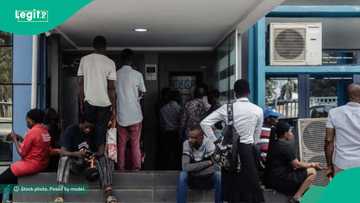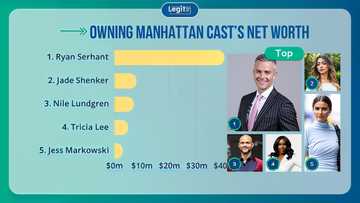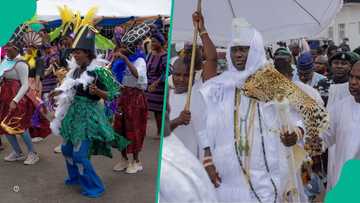Top 10 richest local governments in Nigeria: Which ones are they?
Nigeria has a diverse economy rich in natural resources. It has 36 states and 774 local governments that drive growth. Some, like Lagos Island in Lagos State, generate over $30 billion in revenue, while others rely on federal funding. Here is a look at the richest local governments in Nigeria and what makes them stand out.
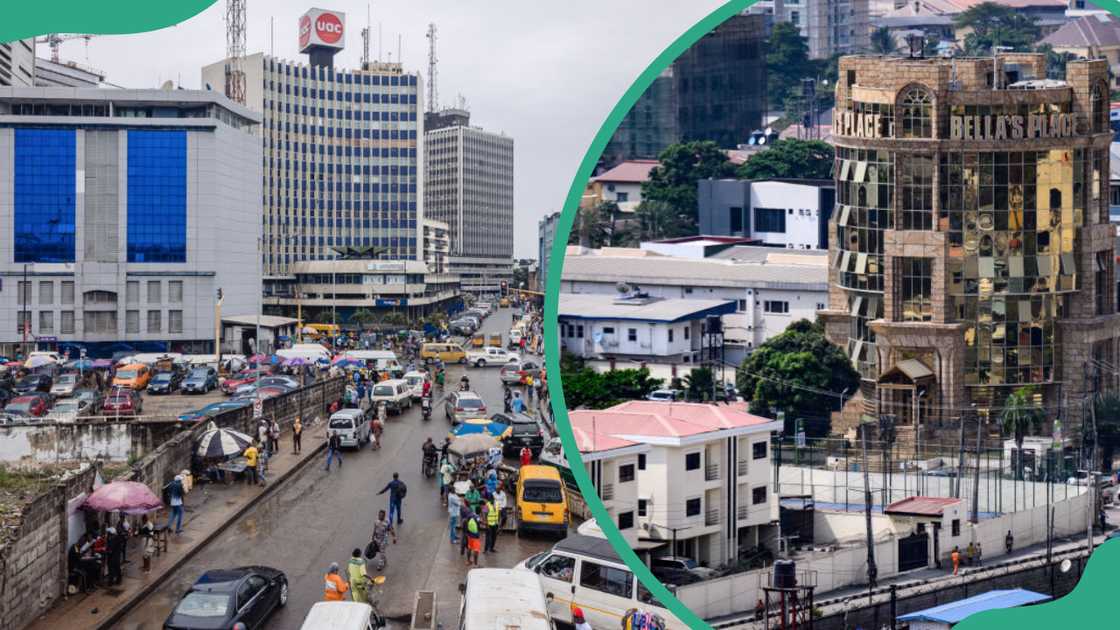
Source: Getty Images
TABLE OF CONTENTS
- Key takeaways
- The richest local governments in Nigeria
- 8. Ibadan Northwest
- Which local government generates the highest revenue in Nigeria?
- What are the 3 richest states in Nigeria?
- Who is the richest region in Nigeria?
- Which is the largest LGA in Nigeria?
- What is the oldest LGA in Nigeria?
- Which is the richest LGA in Cross River State?
- What is the third richest LGA in Nigeria?
- Which is the richest LGA in Lagos?
- Which are the top 10 richest local governments in Africa
Key takeaways
- Lagos Island tops the list as the richest local government in Nigeria with a strong finance and commerce sector.
- Abuja Municipal and Eti Osa follow closely, driven by real estate, business, and government services.
- Most of the richest local governments in Nigeria are in urban centers with thriving industries and investment opportunities.
The richest local governments in Nigeria
A state’s wealth is measured by its ecological footprint, life expectancy, inequality, and well-being. In Nigeria, LGA wealth depends on natural resources, fertile land, and the ability to attract investments through strategic locations.
To compile this information, we used data from sources like the National Bureau of Statistics (NBS), the Revenue Mobilization Allocation and Fiscal Commission (RMAFC), and the Federal Ministry of Finance, Budget and National Planning.
No | LGA | GDP |
1. | Lagos Island | $30 billion |
2. | Ikeja | $19 billion |
3. | Abuja Municipal Area Council | $12 billion |
4. | Eti-Osa | $10 billion |
5. | Uyo | $8 billion |
6. | Obio-Akpor | $8 billion |
7. | Bonny Island | $7 billion |
8. | Ibadan Northwest | $6 billion |
9. | Calabar Municipal | $5 billion |
10. | Apapa | $5 billion |
Below is a breakdown of Nigeria’s ten wealthiest local governments. It includes their states, populations, GDP estimates, main economic activities, and land areas in square kilometres.
10. Apapa
- Created: 1976
- GDP: $5 billion
- Population: 330,000
- Land area: 40.4 square kilometres
- Notable economic activity: Seaport operations, Manufacturing, Commerce
Apapa is an LGA in Lagos State, located west of Lagos Island. It is one of the top 10 richest local governments in Nigeria. The area hosts several major ports and terminals managed by the Nigerian Ports Authority (NPA). Trade, shipping, and port operations are the main drivers of Apapa’s economy.
9. Calabar Municipal
- Created: 1989
- GDP: $5 billion
- Population: 372,000
- Land area: 142 square kilometres
- Notable economic activity: Tourism, Industry, Commerce
Calabar Municipality is one of Nigeria's most prosperous local governments. Known as the tourism capital of Nigeria, it is famous for its rich cultural heritage. The city has some of the cleanest and most beautiful streets in the country.
Its scenic landscape supports a thriving tourism industry, alongside palm oil and transport businesses.
8. Ibadan Northwest
- Created: 1991
- GDP: $6 billion
- Population: 220,000
- Land area: 3080 square kilometres
- Notable economic activity: Agriculture, Commerce, Transport
Ibadan is the capital of Oyo State and one of the most populous cities in Nigeria, after Kano and Lagos. Oyo is the largest state by land area and one of the most prosperous in the country.
The Ibadan Northwest LGA thrives on agriculture, producing cocoa, cassava, palm oil, cotton, timber, and rubber. It also hosts the International Institute of Tropical Agriculture (IITA).
7. Bonny Island
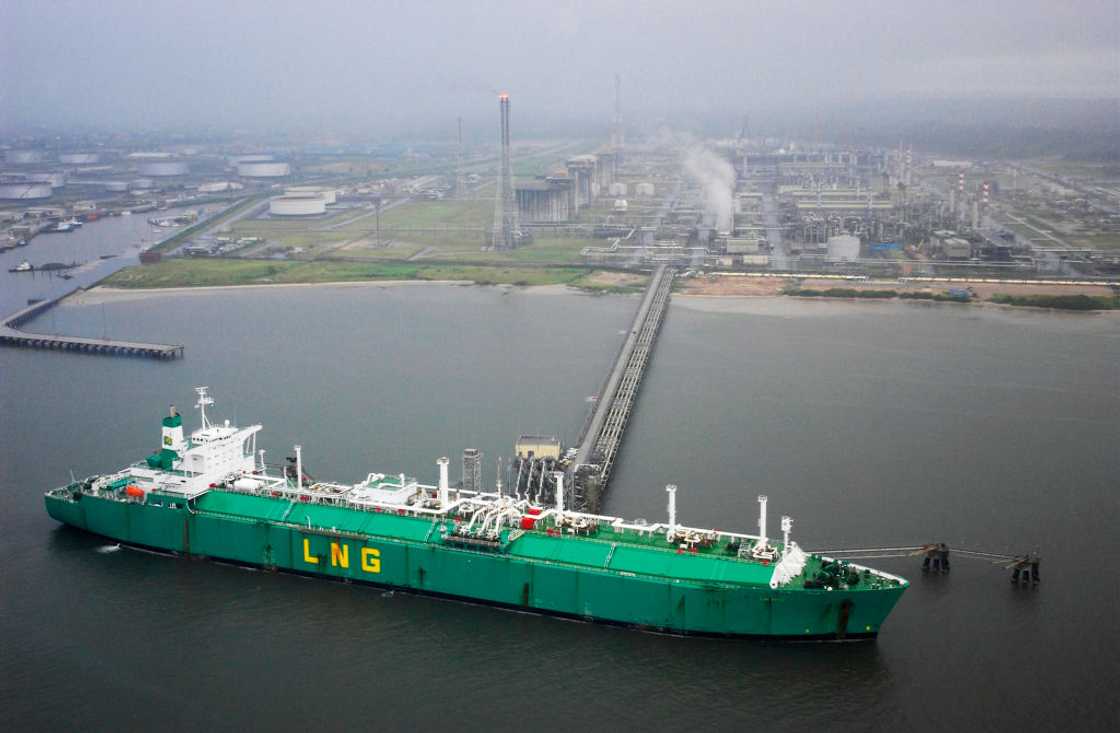
Source: Getty Images
- Created: 1968
- GDP: $7 billion
- Population: 309,000
- Land area: 1045 square kilometres
- Notable economic activity: Oil & Natural Gas
Bonny Island is in Rivers State in the Niger Delta region. It hosts one of the largest liquefied natural gas (LNG) plants in the world. The Nigerian National Oil Corporation and several multinational oil companies are based there.
Its vast oil reserves produce about 22 million metric tons of LNG each year, making it one of the richest local governments in Nigeria.
6. Obio-Akpor
- Created: 1989
- GDP: $8 billion
- Population: 880,000
- Land area: 260 square kilometres
- Notable economic activity: Fisheries, Aquaculture, Agriculture, Oil & Natural gas
Obio Akpor, based in Rivers State, is an LGA in the metropolis of Port Harcourt and one of Nigeria's major economic centres. Obio Akpor is home to two of Nigeria's biggest refineries and other energy companies. The majority of its citizens are involved in agriculture and fishing.
5. Uyo
- Created: 1989
- GDP: $8 billion
- Population: 598,000
- Land area: 362 square kilometres
- Notable economic activity: Healthcare, Tourism, Agriculture, Education
Uyo LG is one of the wealthiest LGAs in Nigeria and the richest local government in Akwa Ibom State. Uyo LGA is a vibrant and prosperous urban centre. Its economy is driven by transportation, sports, and industry.
The area is home to Victor Attah International Airport, the University of Uyo, and Godswill Akpabio International Stadium.
4. Eti-Osa
- Created: 1991
- GDP: $10 billion
- Population: 420,000
- Land area: 174.9 square kilometres
- Notable economic activity: Commerce, Industry, Finance
Eti Osa, once the seat of Nigeria’s capital, is home to the country’s president. It is the fourth-richest LGA in Nigeria. The area features some of the most luxurious estates for the richest Nigerians who enjoy its affluence and lifestyle.
Its economy thrives on business and industry, while many residents engage in farming, fishing, and trade. Eti Osa also serves as a major commercial centre with many banks, clubs, hotels, and modern markets.
3. Abuja Municipal Area Council
- Created: 1984
- GDP: $12 billion
- Population: 1,693,000
- Land area: 1476 square kilometres
- Notable economic activity: Real Estate, Hospitality, Government services
The Abuja Municipal Area is the nation’s capital and the third-richest LGA in Nigeria. It is also the eighth-most populous city in the country. The area houses politicians, kings, senators, and other prominent figures. Real estate is its main economic driver.
The city features tall skyscrapers, organized streets, and well-planned residential areas. Its layout was designed under an 1980s master plan by International Planning Associates (IPA).
It also hosts the headquarters of major regional bodies, including OPEC and ECOWAS. It is one of the richest local governments in Nigeria in 2025.
2. Ikeja
- Created: 1976
- GDP: $19 billion
- Population: 470,000
- Land area: 49.92 square kilometres
- Notable economic activity: Aviation, Hospitality, Retail
Ikeja is the capital of Lagos State and the second-richest Local Government Area in Nigeria. Ikeja is renowned for its high-end shopping centres, hotels, and cutting-edge infrastructure.
It is a rich, busy commercial centre that houses Ikeja City Mall, Muritala Muhammed International Airport, and the State Government House. The main economic drivers in Ikeja LGA are manufacturing, commerce, transportation, and real estate.
1. Lagos Island
- Created: 1968
- GDP: $30 billion
- Population: 315,000
- Land area: 9.26 square kilometres
- Notable economic activity: Finance, Real Estate, Commerce, Tourism
Also referred to as Isale-Eko, Lagos Island, located in Lagos State, is Nigeria's richest Local Government Area. The area lies on the Lagos Lagoon on the coast and is connected to the mainland by three bridges.
It is a major hub for finance, hospitality, and commerce. The area hosts headquarters of leading Nigerian banks and real estate firms. It is also home to many corporations. Notable landmarks include Freedom Park, the National Museum, and Tom Jones Memorial Hall and Library.
Which local government generates the highest revenue in Nigeria?
Lagos Island Local Government generates the highest revenue in Nigeria.
What are the 3 richest states in Nigeria?
Lagos State, Rivers State, and Ogun State are the three richest states in Nigeria.
Who is the richest region in Nigeria?
The South West is the richest region in Nigeria. It has the nation’s biggest cities and strongest economic base, led by Lagos State.
Which is the largest LGA in Nigeria?
Toro LGA in Bauchi State is the largest in Nigeria. It covers a vast land area and has a population engaged mainly in farming and trade.
What is the oldest LGA in Nigeria?
Lagos Island is the oldest LGA in Nigeria. It was created in 1968 and remains one of the country’s key financial and commercial centers.
Which is the richest LGA in Cross River State?
Calabar Municipality is the wealthiest LGA in Cross River State.
What is the third richest LGA in Nigeria?
Abuja Municipal Area Council is the third richest local government area in Nigeria, with an estimated GDP of $12 billion.
Which is the richest LGA in Lagos?
Lagos Island is the richest LGA in Lagos and across the country.
Which are the top 10 richest local governments in Africa
Nigeria is the only country divided into LGAs. Other countries are divided into zones, municipalities, governorates, counties and regions. Some of the cities that are known for their economic significance and potential in Africa include:
- Johannesburg
- Cape Town
- Cairo
- Lagos
- Durban
- Nairobi
- Pretoria
- Casablanca
- Accra
- Paarl Franschhoek & Stellenbosch
These are the richest local governments in Nigeria, known for their significant economic contributions and wealth in the country. Some of these LGAs hosts major financial institutions, corporate headquarters, and thriving business districts.
Legit.ng recently published an article detailing the various ways governments and other institutions can use to fight political apathy in Nigeria. Political apathy refers to citizens isolating themselves from political activities and affairs within their country.
This detachment often stems from negative emotions or past experiences related to elections and the overall political landscape. Although seemingly benign at first, political apathy can have detrimental effects on a nation, hindering social, political, and economic progress.
Source: Legit.ng

Jackline Wangare (Lifestyle writer) Jackline Simwa is a content writer at Legit.ng, where she has worked since mid-2021. She tackles diverse topics, including finance, entertainment, sports, and lifestyle. Previously, she worked at The Campanile by Kenyatta University. She has more than five years in writing. Jackline graduated with a Bachelor’s degree in Economics (2019) and a Diploma in Marketing (2015) from Kenyatta University. In 2023, Jackline finished the AFP course on Digital Investigation Techniques and Google News Initiative course in 2024. Email: simwajackie2022@gmail.com.

Adrianna Simwa (Lifestyle writer) Adrianna Simwa is a content writer at Legit.ng where she has worked since mid-2022. She has written for many periodicals on a variety of subjects, including news, celebrities, and lifestyle, for more than three years. She has worked for The Hoth, The Standard Group and Triple P Media. Adrianna graduated from Nairobi University with a Bachelor of Fine Arts (BFA) in 2020. In 2023, Simwa finished the AFP course on Digital Investigation Techniques. You can reach her through her email: adriannasimwa@gmail.com

